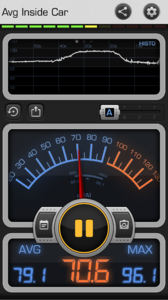But I think 3 flights in a row was a little too much for my ears, and each time we landed I had more difficulties in equalizing, and I had to do the valsava's manouvre, which I do not like doing, and my ears stayed with a full feeling and my T was higher for a few days as my ears didn't equalize fully, and I needed to go back to masking before sleep...
This is exactly the same issue I had. The problem occurred on the fifth flight of 6 in the space of 3 weeks. I can voluntarily equalise my ears by controlling the muscle that opens the eustachian tubes. On this particular occasion I realised my ears were blocked because I couldn't equalise them no matter what. The pressure starts to build and pain begins to grow around the ear drums as they are pulled in. At the same it's hard to hear properly. I also did the valsalva, and I hate doing it, but saw no other option. I didn't want my eardrum to remain under the pressure it was through fear of it rupturing, yet at the same time I feared rupturing it doing the valsalva. I just did it as gently as possible, and as I did it I could fear my ears squelching as air was being pushed past all the mucous. Then I got that pop and my hearing came back online.
The problem was that I was bunged up. I took decongestants and breathed some menthol steam in because I had to fly again the following day. I was a bit apprehensive to say the least, but I had no problem. I think the drugs and steam worked as I felt clearer and could voluntarily open my eustachian tubes again.

 Member
Member
 I use a free dB app and I have no idea how accurate it is.
I use a free dB app and I have no idea how accurate it is.